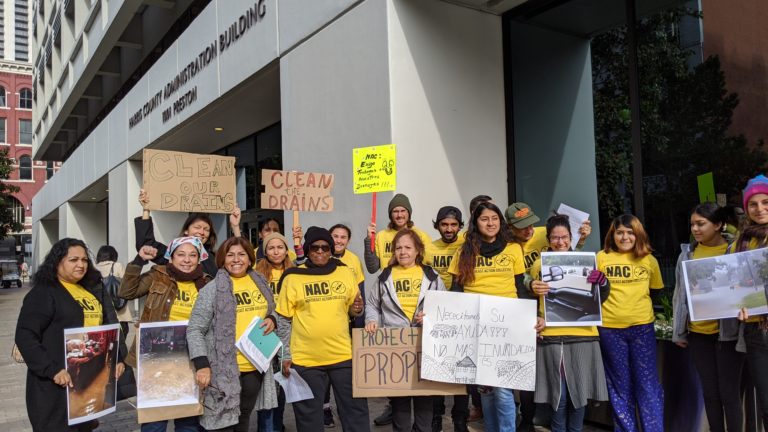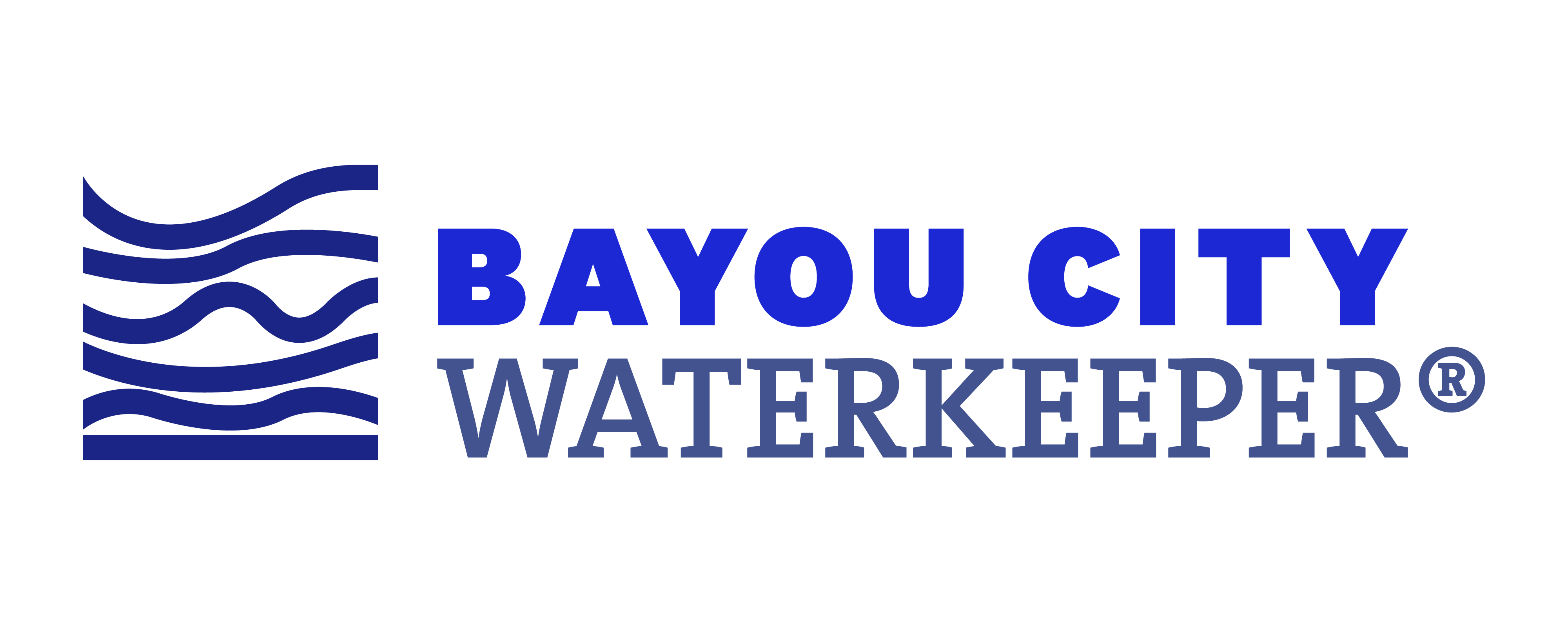Our Story
Mission
Bayou City Waterkeeper protects the waters and people of the Houston region through bold legal action, community science, and creative, grassroots policy to further justice, health, and safety for our region.
Vision
Bayou City Waterkeeper envisions a Houston where water is a catalyst for change. By connecting community, place, policies, and systems we collaboratively advance equitable distributions of power and resources towards life, joy, and regeneration for our watershed.
Read our 2023-26 Strategic Plan.
Values
Values
We work in collaboration across disciplines and communities and intentionally create multiple points of entry to engage in our work. We see water as a connecting and clarifying force. We seek to form authentic connections in our watershed, and we understand that by addressing water injustices, we may confront and uproot the broader systems sowing injustice.
We are inspired by the dynamism of water and the shape-shifting nature of our bayous and their floodplains. As keepers of the waters, we embrace movement and adaptability in our work. Reciprocity is also central in our relationships with people and nature.
We know that dominant methods and tools for protecting water and community health have not worked in this region. We have hard conversations, disrupt systems that have not worked, create new frameworks, bring together unconventional allies, and transform data and research into action. We are not afraid to use the justice system to fight for water justice. We give people a voice and build power through the legal system, policy, science, and resources.
We recognize and call out inequities in our watershed arising from historic injustices and disinvestments. We know that frontline communities are experts in their own experiences and amplify their voices through the knowledge and resources they need to protect their waterways, homes, neighborhoods, access to nature, and infrastructure. We seek justice for our community and our waterways.
We build the world that we want through our everyday actions. We make space for rest and rejuvenation in our work and relationships, internally, through our policies, practices, and externally, through partnerships and programs. As we work to repair systemic harms, we also recognize that water is a site for healing, joy, celebration, reflection, and growth. By allowing ourselves to imagine what we really want, we create new visions, transitioning our world into the one we want.
Justice, Equity, Diversity, Accessibility & Inclusion (JEDAI)
Bayou City Waterkeeper has adopted a JEDAI Plan for 2023-24
GOAL: To examine and deepen our commitment to the values of justice, equity, diversity, accessibility, and inclusion, across every aspect of our work.
VISION: We will take meaningful action to work toward a vision of water justice that centers the communities most affected by water pollution, flooding, and climate change.
PRINCIPLES:
We aim to deepen our commitment to the following principles:
- Justice, equity, diversity, accessibility, and inclusion matter. There can be no environmental justice without meaningful commitment to these values.
- Justice, equity, diversity, accessibility, and inclusion alone are not enough and are obligations requiring ongoing commitment and examination.
- By undertaking this work, we strive to dismantle the vestiges of white settler colonialism and racist redlining policies that have produced power disparities in traditional conservation work and non-profit organizations and infrastructure inequities and environmental injustices in our communities.
- The importance of intersectionality, the beliefs that all people must be treated with dignity, and no people are disposable, and an understanding that human and ecological connection are antidotes to the forces that have created environmental destruction and injustices inform this entire plan.
- Our board, staff, membership, and partners should reflect the diversity of this region and receive the support needed to show up authentically and contribute meaningfully to our shared work.
- Our work should reduce harmful impacts to communities most affected by water pollution, flooding, and climate change. The perspective, priorities, and needs of community members most affected by water pollution, flooding, and climate change must inform all our work.
- In the nation’s most diverse city, positioned on the frontlines of climate change, we must center and support solutions that are borne out of impacted communities. This type of innovation requires radical imagination and the discomfort and growth that comes from hard conversations and conflict that we cannot shy away from.


